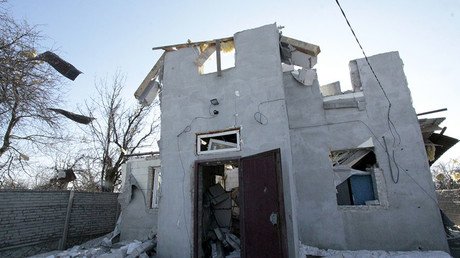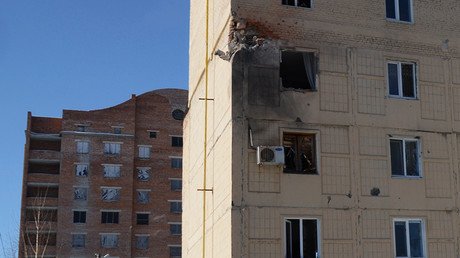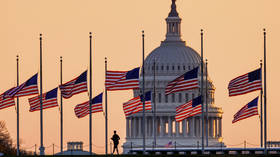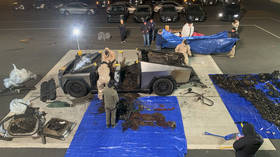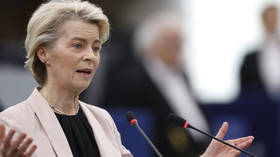Ukraine ceasefire violations reach thousands, inflict severe suffering on civilians – OSCE monitor
The violent escalation of the Ukrainian conflict in recent days has led to thousands of truce violations and “indiscriminate” shellings by both sides, Alexander Hug, the principal deputy chief monitor of the OSCE mission in Ukraine, told RT.
The mission has registered an “uptick in violence starting from the early morning hours on Sunday”, January 30, Hug said during an interview with RT, adding the OSCE experts have recorded “thousands” of instances of fire exchange and shellings.
The warring parties used various heavy artillery pieces, “including the most indiscriminate ones – the Grad systems,” Hug said, referring to the Soviet-made BM-21 multiple rocket launchers.
The OSCE mission deputy head also stressed that the latest escalation of violence has led to the “severe suffering” of civilians caught in the area engulfed by hostilities.
“Electricity in the area… is cut off and people are freezing there in their apartments. They have no heating, limited water supplies,” he told RT.
Hug called on both sides “to show restraint and allow the repair crews to re-establish utility services.” He also expressed regret that both the Ukrainian government forces and the rebels “are violating the Minsk Agreements in many aspects.”
“The heavy weapons should have long been withdrawn at least 15 km away from the contact line. Earlier this morning when I was at the contact line I heard both incoming and outgoing heavy weapon [fire] that clearly shows that both sides used their weapons in the areas where they should not be,” he told RT.
He also said “the close proximity of the [opposing] forces in that specific area, where the violations have been registered on Sunday is one of the major causes for this escalation.”
At the same time, he said, the sides are apparently able to stop the violence “at a very short notice,” as the OSCE monitoring groups witnessed on Wednesday that the number of ceasefire violations “dropped from thousands to only few in a matter of hour or so to allow some initial repair works to take place in the affected area.”
The deputy head of the OSCE mission reiterated that the Ukrainian conflict “can only be solved and should only be solved at the negotiations table.”
The latest major outbreak was allegedly caused by an attack from Ukrainian paramilitary units supported by the army and involved intense fighting around the town of Avdeevka, which is located close to the disengagement line between pro-Kiev forces and the rebels in the east as well as shelling the city of Donetsk.
Ukraine’s deputy defense minister admitted its troops were slowly advancing on rebel positions. He claimed, however, that the steps were provoked by actions from anti-Kiev forces.
The conflict in eastern Ukraine ignited in 2014, when people in two regions rejected a nationalist-driven armed coup in Kiev, which imposed a new government hostile to Moscow and the Russian-speaking population of the East.
The new authorities launched a military crackdown, which led to a bloody conflict that has so far claimed around 10,000 lives, according to UN estimates.
A ceasefire and roadmap for reconciliation were negotiated in 2015 with the help of Russia, France and Germany. The so-called Minsk agreement imposed an OSCE-monitored withdrawal of heavy weapons, which was supposed to be followed by a blanket amnesty for the rebels, a constitutional reform granting the rebellious regions greater autonomy, local elections, and finally, the return of sovereignty over the regions to Kiev.
